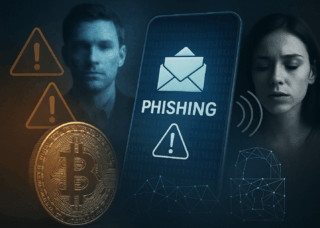One of the biggest concerns for parents today is cyberbullying. More than half of kids aged 10 to 18 have exercised at least one form of cyberbullying in the past.
With so many students using cell phones to do everything from studying for homework to recording a friend at a house party and spreading it all over social media, it is no surprise that cyberbullying has become so integrated into our society.
As a parent, there are ways you can help prevent your child from becoming a victim of cyberbullying and, at least, help them get the support needed to move on with their lives.
What is Cyberbullying?
Cyberbullying is a form of bullying that happens online. It can be perpetrated by strangers or people the victim knows and tends to happen on social media sites or via personal messages.
These personal attacks happen through text messages, email, social media posts, blogs, websites, and other forms of online communication to harass their targets. Some cyberbullying involves posting embarrassing photos or information about victims on public websites. Other examples include:
- Threatening texts or emails from anonymous senders
- Impersonation through fake profiles
- Repeated phone calls from an anonymous caller
- Sending mean tweets or Facebook messages
- Sending hateful emails filled with false rumors about you to all your friends and family members
- Creating slanderous poetry about you and posting it on YouTube so that everyone sees it when they search for your name
- Signing you up for spammy email lists without asking permission
- And many others!
Signs of cyberbullying
Cyberbullying is hard to recognize. It can be subtle and anonymous. Many parents do not see what their kids are viewing online. If you suspect your child is being cyberbullied, look for these signs:
- Your child becomes quiet and withdrawn (i.e., loses interest in friends and activities)
- Your child has changes in sleep patterns or appetite (i.e., won’t eat lunch at school but eats snacks after school instead)
- Your child complains of physical symptoms like headaches or stomachaches
These are all signs that they are being bullied. It may not be easy to pinpoint if the bullying occurs online or over text messages where there are no witnesses to see how your child reacts. This is a serious problem. Young people who access or share sexual content or images of cyberbullying or violence experience a 50% higher risk for thoughts of suicide. You cannot leave these situations to fix themselves.
Why is this an Issue for Parents?
Parents should be worried about the safety of their children online and offline because both can seem dangerous when you’re not sure what is going on or what steps need to be taken next – especially when someone is being bullied.
The first step to protecting your child from cyberbullying is, of course, talking to them about it. It’s worth making sure that you take a proactive approach instead of waiting for them to bring something up on their own. That way, you can address any concerns without worrying about whether they even know what’s going on in the first place.
Next, make sure that you keep an eye on their social media accounts and other online activity—especially if they have private accounts. There are plenty of great parenting apps out there that help keep tabs on what your kids are doing online. That includes safety features like filtering and monitoring tools. Nothing beats checking in with them occasionally when they’re online so that they feel comfortable enough around you to let you know if something isn’t right with their account(s). Other tips include:
1 – Have an Honest and Authentic Conversation
You can’t stop your child from getting bullied online or offline, but you can prepare them to deal with it. If your kid is on social media, talk with them about the difference between cyberbullying and traditional face-to-face bullying.
Tell them that while most people will never have to deal with being physically hurt by another person again when they get older, they may still experience hurtful words online. Make sure they understand how much these words can hurt someone, even if they don’t realize just how much it hurts others now. You want to create a safe space where your kids feel empowered to speak up.
2 – Don’t Respond to the Messages
Responding to the bully and trying to defend your child is tempting. You may even want to get back at the bully and make them feel bad for their actions. This can be very hard, but you mustn’t respond in any way. If you do, then this will only make things worse for your kids in the long run. The best thing you can do is document everything and help your child move on from the situation. This could be a simple single instance that does not deserve your attention. You should get concerned if it continues.
3 – Report it to the School or Administration
Schools are responsible for keeping their students safe, which means they should have a policy on cyberbullying. If your child reports that they’re being bullied on social media, ask them if there’s a way for you and your family to be involved in the process of reporting this incident.
The more information you have about what happened, how it was handled, and what actions are being taken by both parties involved (if any), the better equipped you’ll be to help your child through this challenging time.
4 – Keep Copies of All the Cyberbullying
Keeping a record of all the cyberbullying will help you build a case against your child’s harasser. The following is a list of essential things to keep:
- Copies of all the cyberbullying messages
- Copies of all the cyberbullying posts
- Copies of all the cyberbullying comments
- Copies of all emails sent from your child’s account and any other accounts that may be involved in this harassment
- And anything else involved in the online harassment
5 – Report it to Social Media Sites and Your ISP
Report cyberbullying on all of the different sites where it’s happening. Popular social media sites have cyberbullying policies and will often work in your favor.
You can also report it to your internet provider if you see a lot of harassment coming from an IP address or a location outside of school hours (which will help them track down who is doing this).
6 – Get Professional Support for Your Child
If your child is not responding well to your efforts to help them deal with cyberbullying, it may be time to seek outside help. Talk with your pediatrician or school guidance counselor about finding someone who specializes in helping kids deal with bullying and social media. These things may seem small to adults who have developed thicker skin in the real world, but to your child, this is a serious attack that has long-term emotional repercussions.
7 – Contact the Police Regarding any Threats
Every parent’s nightmare is having a child in danger, and if you think your kid is being threatened by cyberbullies, then you should contact the police immediately. The officer will create a report and assess whether any further action needs to be taken.
In some cases, the threat may be severe enough for law enforcement officials to investigate further—especially if it involves weapons or sexual assault. If this is the case, keep a copy of all threatening emails or text messages from these bullies so that they can be used as evidence against them in court if necessary. Without proof of these threats, few prosecutors will take your complaint seriously enough for them to pursue charges against the bully.
When in Doubt, Hire a Professional Private Investigator
You can always hire a private investigator if you need help and don’t know where to turn. They will be able to find out who is behind the bullying, threats, and harassment.
At Privin Network, we have former law enforcement trained individuals who know how to successfully navigate the online world to track down cyber bullies and collect the evidence necessary to move a case forward.
Kids today have to deal with a lot more bullying than kids in the past, but there are things you can do to help them avoid it and cope with it when they come across it. Make sure your kids know that if they ever encounter cyberbullying, they should tell you immediately and not respond in any way (no matter how tempting).
Every child is different, so it’s essential to talk about how you feel about bullying and cyberbullying with your children. The best way to do this is by having an open and honest conversation. If you are in a drastic situation where cyberbullying is not stopping, contact our team today. We will help you get the peace of mind to put this situation in the past so you and your child can heal and move forward with your lives.
Frequently Asked Questions (FAQs)
How can I recognize if my child is being cyberbullied?
Signs include withdrawal from social activities, changes in sleep or eating patterns, unexplained physical ailments, or a sudden reluctance to use digital devices.
Are there resources available to help victims of cyberbullying?
Yes, organizations like The Cybersmile Foundation offer support services, including counseling and advice, for individuals affected by cyberbullying.
How can schools contribute to preventing cyberbullying?
Schools can implement anti-bullying policies, provide education on digital citizenship, and create a supportive environment where students feel safe reporting incidents.
What role do bystanders play in addressing cyberbullying?
Bystanders can intervene by offering support to the victim, reporting the behavior, and promoting a culture of respect and kindness online.






